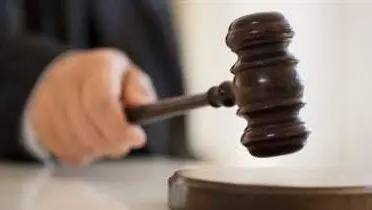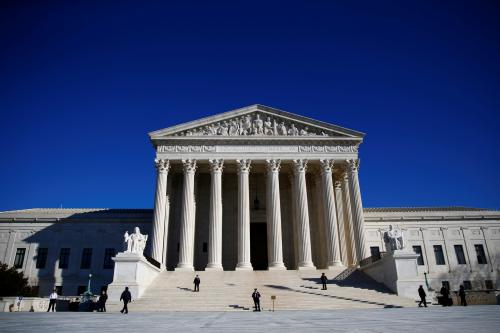When the Supreme Court granted certiorari in the Masterpiece Cakeshop case it was expected to resolve, or at least take a large step toward resolving, clashes between the First Amendment’s freedom of speech and free exercise (of religion) clauses and a state’s ability, if not its obligation, to enforce rights to freedom against discrimination that minorities enjoy under various civil rights acts and the Fourteenth Amendment. The case involved a baker, Jack Phillips, who, on religious grounds, refused to bake a wedding cake for two gay men, but the potential reach of a decision for the baker was far broader. The Court’s reluctance to question the bona fides of asserted religious beliefs could have opened the door not just to wide-ranging denials of services to gay men and women, but also, in some circumstances, to women in general and conceivably to racial and ethnic minorities as well. One can imagine, for example, a shoe shop that turned away Jews because its owner worshipped at a church that held that Jews were Christ killers, or a restaurauteur might, protected by the First Amendment, refuse to serve women unless they wore veils because he thought it a sin to look upon unveiled female faces.
No one expected that an opinion favoring Phillips would go so far as to allow such discrimination, but some feared it would be a first step in this direction. Others feared that if Phillips prevailed on a free speech (i.e. freedom from being compelled to speak) rationale rather than, or in addition to, his free exercise claim, the door would be opened to flouting anti-discrimination laws, even when motivations were not religious. One might, for example, claim that letting blacks and Hispanics enter an amusement park or book a hotel room was compelled speech because the action implicitly declared that these minorities were the equal of whites. The claim might seem far-fetched, but Justices Thomas and Gorsuch, concurring in Masterpiece Cakeshop, saw in the act of providing a wedding cake to a gay couple an implicit statement that the baker approved of gay marriage.
The betting before the case came down was that the decision would turn on Justice Kennedy’s views and on how he resolved the tension between his commitment to protecting the dignity of gay persons and the value he places on freedom of conscience and religion. The decision did indeed turn on Justice Kennedy’s views—he wrote the majority decision—but not in a way that the cognoscenti anticipated. Rather than provide guidance on how tensions between First Amendment claims and the right to non-discrimination should be resolved, Justice Kennedy sought to avoid the tensions altogether. The result is an opinion that reads more like a due process case than a First Amendment case, for the baker’s victory turns not on Phillips’s claim that he was being forced to make statements he objected to or to violate his religious principles, but rather on a determination that Philips had not been given a fair hearing when the Colorado Civil Rights Commission (CCRC) found he had violated the Colorado Anti-Discrimination Act (CADA). According to Kennedy, it was the Commission’s failure to maintain a respectful neutrality toward religion, rather than the decision it reached, that infringed upon Philips’s rights under the First Amendment’s Free Exercise clause. Kennedy’s view rests on a perception of an animus toward religion that he discerned in the CCRC’s proceedings. His prime exhibit was a statement one of the Commissioners made at a second hearing in the case:
“I would also like to reiterate what we said in the hearing or the last meeting. Freedom of religion and religion has been used to justify all kinds of discrimination throughout history, whether it be slavery, whether it be the holocaust, whether it be—I mean, we—we can list hundreds of situations where freedom of religion has been used to justify discrimination. And to me it is one of the most despicable pieces of rhetoric that people can use to—to use their religion to hurt others.”
This commissioner’s claim, true in its specifics, may be read as indicating not an animus toward religion but an animus toward resorting to religious claims to justify discrimination. Not only is it mentioned in Kennedy’s opinion without any reference to the context in which it was said, but it is the opinion of one member of a 7-person commission, none of whom, it appears, dissented from the Commission’s judgment. Moreover, the Commission’s decision affirmed the prior ruling of an administrative law judge (ALJ) and was in turn affirmed on appeal by a three-judge panel. There is no reason to believe that the ALJ or any of the other decision makers were hostile toward religion, though Justice Kennedy seems to see a suggestion of hostility in the failure of the other commissioners and reviewing judges to specifically disavow the above quoted language. It is not obvious, however, why a brief remark should trigger an immediate or later disavowal, nor is it clear that the language should be interpreted as showing a bias against religion, rather than as a reason to be cautious in accepting religious justifications for discrimination. Perhaps what really upset Justice Kennedy was the argument’s implication that Phillips’s reliance on religion was an insincere excuse to discriminate against gays when there was abundant evidence to the contrary, including his expressed willingness to sell baked goods other than wedding cakes to gay people, and his refusal to bake money-making Halloween goodies because the holiday offended his Christian beliefs.
Justice Kennedy’s reading (or misreading) of the quoted language seems sincere rather than a position taken to justify his opinion. He fixated on this issue at the oral argument in the case, although he seemed to be the only justice who thought the statement important. This makes it surprising that he was able to get a majority of the Court to accept his reasoning as the rationale for its ruling. Perhaps he was wielding his power as the swing vote to write an opinion which he, and perhaps he alone, actually subscribed to.
Justice Kennedy sought to bolster his judgment that the CADA was not neutral vis-à-vis religion by referencing three complaints, brought by a Mr. William Jack. Mr. Jack claimed that his rights under CADA had been violated when three bakers he approached refused to provide cakes frosted with religious justifications for anti-gay sentiments. The CCRC dismissed Jack’s complaints. Justice Kennedy suggests that these dismissals cannot be reconciled with the commission’s decision to uphold the complaint against Phillips. The Phillips case, however, is by no means parallel (despite a concurring opinion by Justice Gorsuch, joined by Justice Alito, disputing the point). In each of the dismissed cases Jack sought to combine symbols of gayness with religious texts to specifically call out gays as sinners. Since the bakers refusing these requests were willing to bake Bible-shaped cakes and frost cakes with Christian texts, it is difficult to see their actions as discrimination against Christians. Rather, as Justice Kagan, joined by Justice Breyer, pointed out, it was the denigration of gays and not the complainant’s religion that the bakers objected to.
The analogy also fails because unlike the bakers whom Jack contacted, Phillips had not been asked to decorate his cake with any statements, written or symbolic, regarding gay marriage. Justice Kennedy might have reasonably supposed that the couple would have asked to have the cake crowned with two men or had some other message celebrating their gayness inscribed on it had Phillips agreed to bake for them, but since Phillips told them immediately that he would not create a cake for a gay wedding, the cake’s design was never discussed. Hence Justice Kennedy’s suggestion that the CCRC was inconsistent in upholding the complaint against Phillips while dismissing the complaints brought by Jack implies that the very act of creating a wedding cake for a gay couple is speech in the same way that placing an anti-gay message on a cake is. His argument implies that to be consistent the CCRC would have to hold either that both the complaints brought by Jack and against Phillips should be upheld or that no complaint should be sustained.
The argument that baking a wedding cake is itself speech was made by Justice Thomas in a concurrence that Justice Gorsuch joined. Indeed, Justice Thomas was willing to go further than Mr. Phillips requested, for Thomas argued that wedding cakes were inherently so symbolic that not just baking but also providing them was a form of speech. Phillips’ attorney, however, at the outset of her oral argument, claimed that baking a cake was compelled speech in violation of a person’s free exercise rights only if the baker was making a custom cake knowing it was for a gay wedding. Without prodding, she conceded that if a cake had been baked and was sitting in the bakery’s window, it would violate the CADA if the baker refused to sell the cake to a gay couple.
But even though it appears necessary to justify Justice Kennedy’s use of the Jack complaint as evidence of a biased commission, seeing an unadorned wedding cake as speech was a bullet he would not bite. Nor would Justice Roberts who joined in Justice Kennedy’s opinion nor, somewhat surprisingly, Justice Alito who had joined Justice Gorsuch in arguing that Jack’s situation was like the situation the Court was addressing but nonetheless did not sign on to Justice Thomas’s opinion.
At the end of the day Masterpiece Cakeshop tells us little about how jurisprudence in this area will develop. Indeed, as it is written, it might be possible for the CCRC to rehear the case, and if it took care to show no biases against religion, it could find that Phillips had violated CADA in a decision that a Supreme Court faithful to Kennedy’s opinion, would uphold – not that I expect the CCRC or the gay complainants to be anxious to revisit the matter, nor is it obvious that the Supreme Court would find for the commission if it could not duck the issue. It does, however, appear that most of the Court’s justices are wary about allowing religious beliefs, however sincere, to create exceptions, even on a case by case basis, to obligations imposed by law. Most justices also seem unwilling to expand substantially the contours of symbolic speech, although if a few judicial faces change, this unwillingness could change along with them, especially if First Amendment claims were made to thwart government actions that the Court’s conservative wing found, for different reasons, objectionable. Matters left hanging by Masterpiece Cakeshop could be resolved soon, or the words with which Justice Kennedy ends his opinion may prove prescient:
The outcome of cases like this in other circumstances must await further elaboration in the courts, all in the context of recognizing that these disputes must be resolved with tolerance, without undue disrespect to sincere religious beliefs, and without subjecting gay persons to indignities when they seek goods and services in an open market.
Both liberals and conservatives may be displeased by cases that follow this formula. But depending on which justices control the Court, decisions realizing Kennedy’s goals may be the best that some can hope for.









Commentary
Masterpiece Cake: Baker wins but the Supreme Court leaves key questions unanswered
June 6, 2018